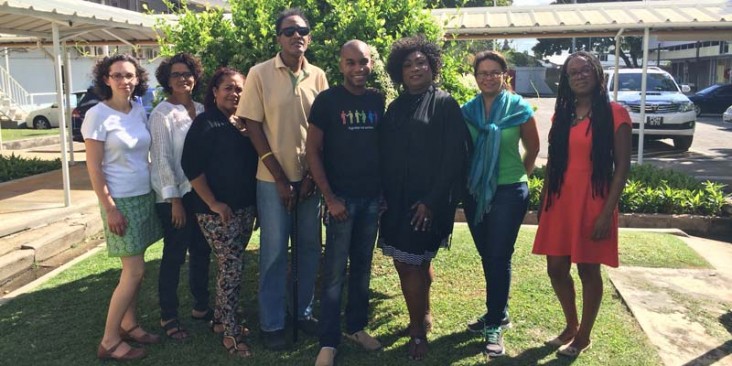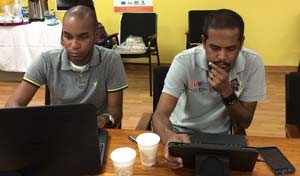- What We Do
- Agriculture and Food Security
- Democracy, Human Rights and Governance
- Economic Growth and Trade
- Education
- Ending Extreme Poverty
- Environment and Global Climate Change
- Gender Equality and Women's Empowerment
- Global Health
- Water and Sanitation
- Working in Crises and Conflict
- U.S. Global Development Lab


June 2016—Gender-based violence and HIV are closely linked in the lives of key populations, including countless female sex workers, men who have sex with men, and transgender women across the globe. Experiences of gender-based violence reduce the uptake of HIV testing, HIV status disclosure, care and treatment, and reduce adherence to antiretroviral therapies. Developing more effective HIV prevention programs among these key populations rests on understanding where, when, and how they experience violence; how it affects their lives; and what potential entry points to care exist.
Supported by the U.S. Agency for International Development (USAID) and the U.S. President’s Emergency Plan for AIDS Relief (PEPFAR), the LINKAGES project is collaborating with the United Nations Development Programme (UNDP) to investigate these issues in Latin America and the Caribbean. This multi-country study, taking place in Barbados, El Salvador, and Haiti and Trinidad, is replicating UNDP’s participatory approach in Asia by engaging key population members and networks as co-leaders.
In May, the LINKAGES/UNDP study investigators and local research partners, the University of the West Indies HIV/AIDS Response Program (UWI HARP), conducted a 5-day training of peer data collectors on the process of collecting data for the study in Trinidad. Members of key population groups were also involved in designing the study, its methods, and interview guides.
The team of peer data collectors will interview about 30 members of key populations. The objective is to learn about the violence these individuals experience throughout their lives because of their gender identity, or because their behavior does not conform to society’s expectations of acceptable roles for men and women. The study uses PEPFAR’s definition of gender-based violence, which includes physical, emotional, economic, and sexual violence. Additionally, study participants are given space to define violence and discrimination for themselves through their answers.
The study team hopes to learn where such violence occurs; its impact on the survivor; who the perpetrators are; how these violent experiences are related to HIV risk behavior; and most importantly, how HIV services can respond to the needs of those who experience violence.
Although data collection is still under way, the engagement of key population members has already benefited peer interviewers and study participants. Sandy* a peer data collector, describes the newfound awareness of a transgender woman whom she interviewed: “She was accepting violence as a way of life, but now [she] knows it was violence and discrimination, infringing on [her] rights.”
Sandy* believes that many key population members are not fully aware of the profound consequences of the violence they experience or how that violence is often rooted in rigid gender norms and inequalities.
Her participation in the study as a peer data collector has heightened her awareness. “[Transgender] women experience bullying and humiliation during school and violence and discrimination in many other areas. The [training] guide helped me to understand the violence throughout their whole lives,” she says.
This heightened personal awareness reflects LINKAGES’s commitment to meaningfully engage key populations in every effort.
Increasing participants’ awareness also motivates them to become better advocates for their own causes. “We hope the study’s findings can be used – especially by key population organizations, networks and their allies – to advocate for better policies and programs that prevent and respond to violence against key populations,” says Emily Evens, LINKAGES implementation science lead and the study’s principal investigator.
*Real name withheld to protect identity.
Additional Links
- Follow LINKAGES on Facebook and Twitter
- Check out LINKAGES on the web
- Read LINKAGES’ blog posts
- Visit the USAID Office of HIV/AIDS Website for Key Populations
- Visit the USAID LINKAGES Website







Comment
Make a general inquiry or suggest an improvement.